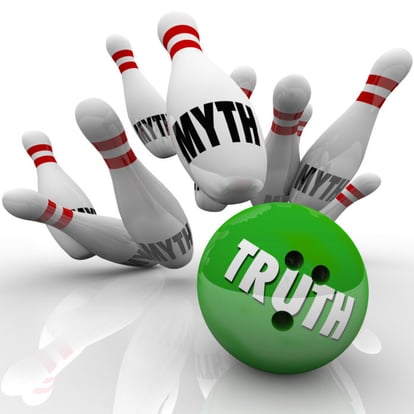
Is anyone else a fan of MythBusters? The popular TV show is pretty straightforward; a group of people try to find out and explain if certain myths are true or not. So in the spirit of the show, we here at Joomag are taking a look at some common digital publishing myths and busting them wide open just for you.
Myth 1: Digital publishing is for experienced publishers only
Busted: It’s an age-old myth usually perpetuated by two groups of people: print-only publishers and publishers still on the fence about digital. But here’s the thing; many digital publishing platforms, like Joomag, make it a point that anyone can start creating inspired publications with little to no publishing experience. People sometimes forget that the 2 main goals of online publishing platforms are to always:
- educate publishers from any background on digital publishing and
- help them use that knowledge to create beautiful online content.
It’s a reciprocal relationship; digital platforms teach users how to publish and then users create publications from those platforms. Experience is irrelevant.
Myth 2: E-books are not as good quality as print books.
Busted: This is an old wives’ tale if we ever heard one. As you might have guessed, it’s usually advocated by print-only fanatics. Why? We have no idea, but we’ve heard some say that because print publications can be physically held in one’s hands, they are perceived as more credible and valuable to readers.
Weird, right? But we also believe that this myth might go hand-in-hand with another one—that digital publications are not as valuable as print because they can be deleted/forgotten easily in the internet world (whereas print content can be physically stored on, let’s say, a bookshelf). Remember, though, that once an online publication is downloaded, it remains on your reading device or computer forever. You can actually argue that print publications are in more danger of getting damaged by fire or water, for example. Moreover, many digital publishing companies let users save and store their content on their platforms for safekeeping.
Proponents of this myth also fail to consider that some digital platforms aren’t strictly digital per se. What we mean is that these platforms also allow publishers to print out hard-copy versions of their publications.
Myth 3: Digital publishers have to do everything themselves
Busted: There seems to be a major misconception that digital authors have to do EVERYTHING themselves when it comes to their publications. When you look at the market, however, you’ll find that there are a ton of talented designers, writers, and marketers who are willing to help you if you need it.
Also keep in mind that online platforms, like Joomag, let you manage the entire lifecycle of your publication by yourself. This means you can create, distribute, track, and monetize your content all from a single platform so you don’t have to rely on any external help if you don’t need it.
Myth 4: E-publications cannot be shared
Busted: This may have been true years ago when digital publishing was still in its infancy, but it isn’t the case anymore. The industry has evolved so much over the past decade that online platforms (the good ones at least) let you share your publications in multiple ways once you’re finished creating them. Take Joomag, for example, where you can use the following channels to share your publication:
-
On all major social media sites including Facebook, LinkedIn, and Twitter
-
On all major devices including iOS, Android, and Windows
-
On the Joomag Newsstand with a unique monthly readership of 5 million
-
On your own website (via embedding)
So what do you think? Have we convinced you that the above 4 myths are exactly that and nothing more? We sure hope so. But if you’ve ever heard of any other crazy publishing myths, we’d love to hear them. So tell us what they are by following and commenting on our social media channels!
FAQ
1. Is digital publishing only for the experienced?
Answer: No, digital publishing is for everyone. Platforms like Joomag cater to users of all levels, providing the necessary tools and education to create online content, making experience level irrelevant.
2. Do digital publications lack the value and durability of print?
Answer: Not at all. Digital publications are permanent once downloaded and can be saved for safekeeping on platforms. They offer the added advantage of being immune to physical damage, unlike print publications.
3. Must digital publishers handle everything on their own?
Answer: No, digital publishers can choose to do it all themselves or enlist help. Services for design, writing, and marketing are available, and platforms like Joomag offer comprehensive tools for managing publications' lifecycles.


